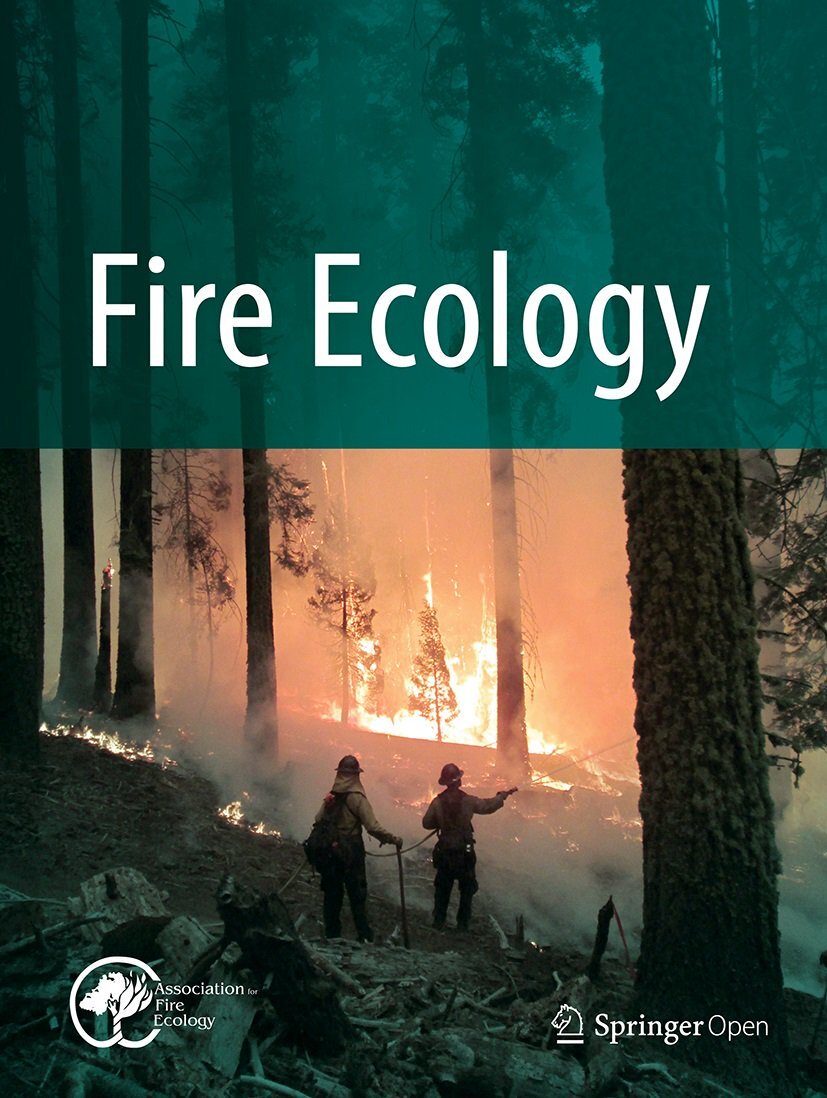What is fire ecology?
Fire ecology is the study of fire as an ecosystem process. Fire ecologists study how changes in the frequency, severity, and extent of fires can provide favorable or damaging influences on ecosystems. They also study the interactions between fires and other ecological patterns and processes, and how they work together or in conflict to vary outcomes on the land. Many global ecosystems have evolved with fire as an essential process that creates and renews habitats. In fire-prone ecosystems, native plants and animals have evolved with fire influencing not only habitat conditions but key aspects of their life history. Fire ecology practitioners work to understand these relations and, often by means of intentional burning practices and other methods, restore these intimate relationships with fire. Indigenous peoples around the world have been using fire on landscapes since time immemorial and have deep knowledge of fire’s role in ecosystems. As an organization, AFE respectfully acknowledges Traditional Ecological Knowledge as science and recognizes that knowledge about cultural fire use and place-based practices is held by many cultures.
A must read if you want to learn more! Principles of Fire Ecology, which shares 5 principles “to define the knowledge fire ecology has produced and provide a framework to support the continued development and impact of the fire ecology discipline.”
Introduction to Fire ecology
World of Wildland Fire Videos: 10 videos that provide an overview of fire ecology and managment topics.
Fire Ecology: A chapter by AFE Board Member Dr. Robert Keane in the book, Encyclopedia of Wildfires and Wildland-Urban Interface (WUI) Fires.
Intro to Fire Ecology Across the US: An introductory chapter in the 2021 book, Fire Ecology and Management: Past, Present, and Future of US Forested Ecosystems. Managing Forest. Several chapters of this book are available online through the USFS TreeSearch and focus on fire ecology in specific regions of the US.
Fire Ecology 2.0: A plenary talk at the 2017 Fire Congress by Dr. Leda Kobziar that focuses on the development and evolution of the fire ecology field.
fire ecology research
Fire Ecology Journal: Peer-reviewed scientific articles that are available for free online.
Fire Lab Seminar Series, USFS Missoula Fire Science Lab: Seminars presented by Fire Lab employees and other researchers from throughout the world that cover current wildland fire research and management topics. Several recorded seminars are available.
Joint Fire Science Program: Reports and findings from JFSP-funded research projects are available on their website. The JSFP Fire Science Exchange Network is an amazing resource for location specific publications, workshops, and field tours.
Glossaries
NWCG Glossary of Wildland Fire, PMS 205 by the National Wildfire Coordinating Group
Forest Fire Multilingual Glossary - Spanish Version from the Mediterranean Forest Fire Fighting Training Standardisation (MEFISTO)
An English-Spanish glossary of terminology used in forestry, range, wildlife, fishery, soils, and botany - Glosario en Ingles-Espanol de terminologia usada en forestales, pastizales, fauna silvestre, pesqueria, suelos, y botanica from the USDA Forest Service
Program and Degrees
AFE has compiled a set of resources for students interested in or currently studying fire. To access these training, employment, degree, and other resources, click here to go to our Studying Fire page.
Many colleges and universities offer wildland fire courses. AFE has an academic certification program to recognize programs which prepare future fire ecology and management professionals. Click here for a list of certified programs.
Find your regional JFSP Fire Exchange Network and learn more about fire science research, agencies, and organizations on our Wildland Fire Links page.
Curriculum Resources for K-12 Education
A Classroom Guide to Appreciating Cultural Burning & Good Fire: This teaching tool by Redbud Resource Group provides resources to rebuild students’ relationship with “good fire” and information on cultural burning.
FireWorks: Interactive, hands-on materials to study wildland fire. FireWorks has specialized curricula for several regions of the U.S. as well as a generic curricula that can be adapted to other areas.
Fire Ecology Learning Lab: Curriculum developed by the Southwest Fire Science Consortium to inspire our future natural resource stewards and community leaders, with materials for both teachers and non-formal educators.
Southern Oregon Fire Ecology Education: Standards-aligned, trauma-informed curriculum for grades K-8 that uses fire as a lens for STEAM learning, land management literacy, and entry into fire-related career pathways.
We Can't Stop Wildfires—But Here's How We Live With Them: Through this case study from California, students will learn about adaptations, policies, and innovations that can help people live with more frequent wildfires. Further engagement activities allow students to explore maps and GIS tools to uncover national fire trends as well as analyze fire adaptations at a school in fire-prone California.
Oak Woodlands Fire Science Curriculum: These ready to teach, tailored science lessons for grades 9-12 focus on region-specific fire ecology. Developed by educators for educators, each lesson teaches important foundational science principles, with the engaging background of placed-based fire ecology.
Wildland Fire For Teachers: This resource page by the National Park Service offers park specific fire curricula for Bandelier National Monument, Carlsbad Caverns National Park, Everglades National Park, Homestead National Monument of America, Mammoth Cave National Park, North Cascades National Park, Rocky Mountain National Park, and Santa Monica Mountains National Recreation Area.
Living With Fire Wildfire Science Curriculum: This curriculum is designed to help Nevada youth understand the role of wildfire in Nevada ecosystems and learn how to reduce their household’s wildfire risk.

